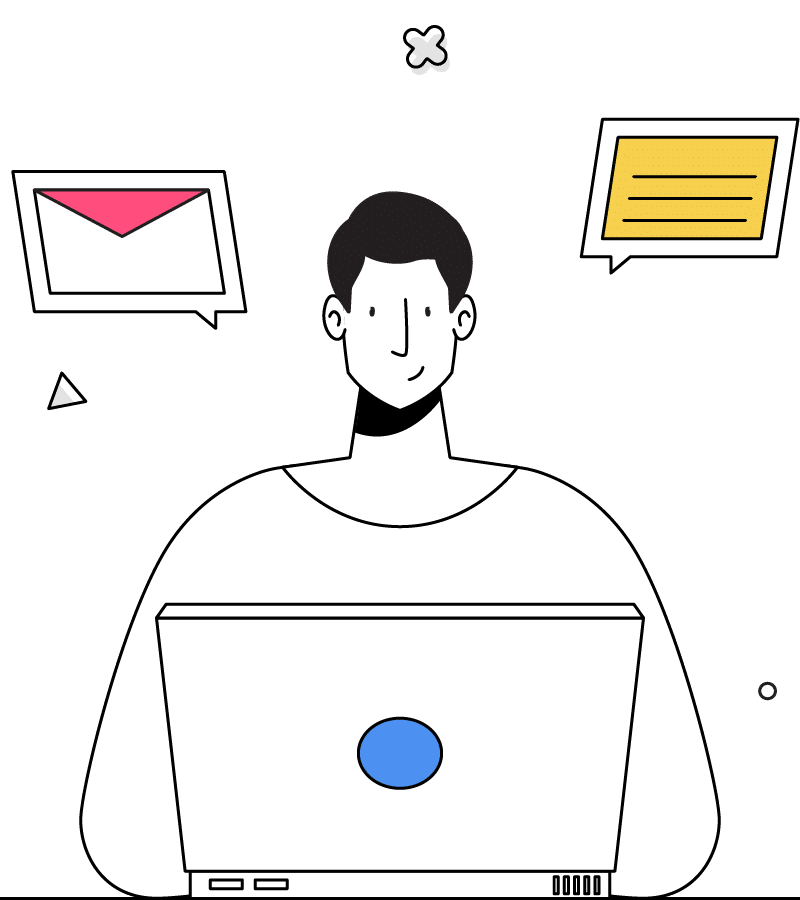GERMAN LEARNING WITH AI
At LinguaTeacher, we utilize the power of Artificial Intelligence to deliver an immersive, personalized, and interactive experience in learning German. Say goodbye to traditional, generic learning methods and welcome a customized approach that adapts to your individual learning style, pace, and objectives. Embark on a transformative journey to learn German efficiently with the innovative support of AI.


Personalized Learning Experience
One of the primary advantages of using AI for language learning is the personalized experience it offers. At LinguaTeacher, our AI-driven platform evaluates your initial German language proficiency with advanced diagnostic tools. From there, it develops a learning plan specifically for you. It considers your strengths, areas for improvement, preferred learning speed, and even your personal interests. This means that each lesson, exercise, and feedback is customized to keep you engaged and motivated. The AI continuously monitors your progress, tweaking the curriculum to challenge you at the ideal level, aiding in faster and more effective learning than conventional methods.
Constant Accessibility and Support
Leveraging AI, learning German becomes accessible 24/7, free from the constraints of time and place. Whether you prefer studying early in the morning or late at night, LinguaTeacher’s AI platform is always available to help you grasp new concepts or review previous lessons. Moreover, AI-driven chatbots offer instant feedback and support, essential for language learners who need regular practice and timely corrections to achieve fluency. This ongoing interaction facilitates consistent practice, crucial for effectively learning German. Additionally, the system generates exercises and simulations that emulate real-life conversations, enhancing your confidence and reducing the fear of making mistakes in actual scenarios.

Challenges of Learning German
1. Why Learn German Today
Learning German holds significant benefits beyond just exploring a new language. It’s the most widely spoken native language in Europe, serving as a key to unlocking professional opportunities across the European Union, particularly in global powerhouses like Germany, Austria, and Switzerland. Knowledge of German opens doors to careers in various fields such as engineering, automotive, pharmaceuticals, and more, where German companies hold prominence. Furthermore, for students, numerous universities in Germany offer excellent education with no tuition fees for international students, provided they demonstrate proficiency in German. Thus, learning German could translate directly into substantial career and educational advantages.
2. Cultural Insights through Language
Diving into the German language also means immersing yourself in a rich tapestry of culture that influences much of Western philosophy, literature, music, and art. By deciding to learn German, you are not only gaining a tool for communication but also a deeper understanding of works by Freud, Nietzsche, and Kafka, among others. Additionally, Germany’s significant role in history, particularly in events like the Reformation and both World Wars, adds layers of historical importance to the language. For those interested in arts, music, and philosophy, learning German can enrich the appreciation and understanding of these works in their original form, thereby offering a more nuanced perspective.
3. Practical Tools and Methods to Learn German
Approaching the process to learn German can initially seem daunting due to its reputation for complexity in grammar and syntax. However, with modern educational tools and methods, mastering German has become more accessible. Language learning apps like Duolingo or Babbel provide interactive and engaging ways to learn, accommodating different learning styles and paces. Moreover, language courses at community colleges, universities, or online platforms offer structured and immersive programs often coupled with cultural exchanges. To effectively learn German, combining these resources with real-life practice through conversation clubs or language partner exchanges can exponentially boost your proficiency and confidence.
FAQ
How long does it typically take to learn German?
The duration to learn German can vary widely depending on the learner’s native language and exposure to German. For English speakers, it typically takes about 750-900 hours of study to reach a comfortable conversational level, according to the Foreign Service Institute.
Is German a difficult language to learn?
What are the best resources to learn German?
A combination of language learning apps, formal courses, multimedia resources like German films and books, and practical speaking opportunities through language meetups are considered effective.
Do I need to learn German to study in Germany?
While many programs, especially at the graduate level, are offered in English, proficiency in German can be a requirement for some universities and will certainly help in day-to-day life.
Can I learn German online effectively?
Yes, with a plethora of online courses, interactive apps, and virtual language exchange communities, learning German online has never been more accessible and effective.
What are the cultural benefits of learning German?
Learning German allows deeper engagement with rich cultural traditions in literature, philosophy, music, and cinema, and provides a greater understanding of historical events from German perspectives.
Learn German
Find out more about German learning.
German Theory
Find out more about German grammar theory.
German Exercises
Find out more about German grammar practice and exercises.

